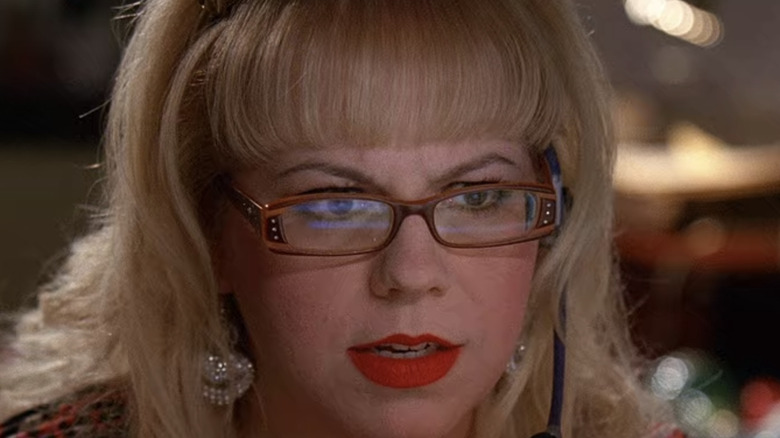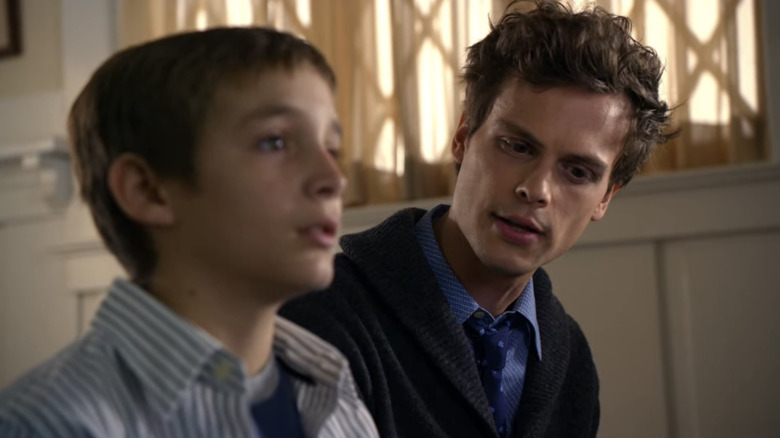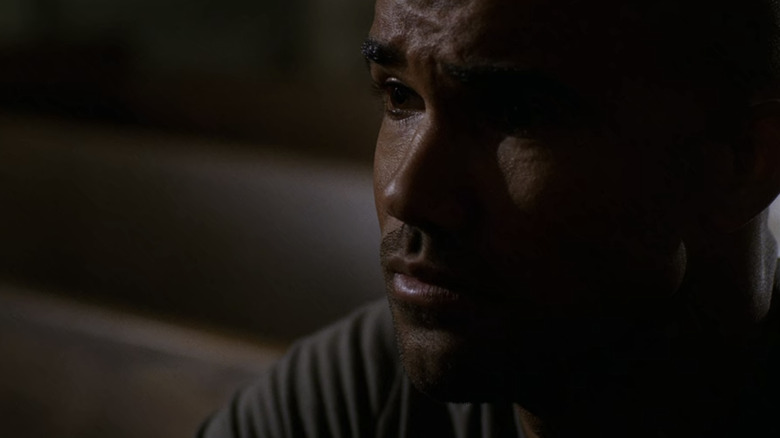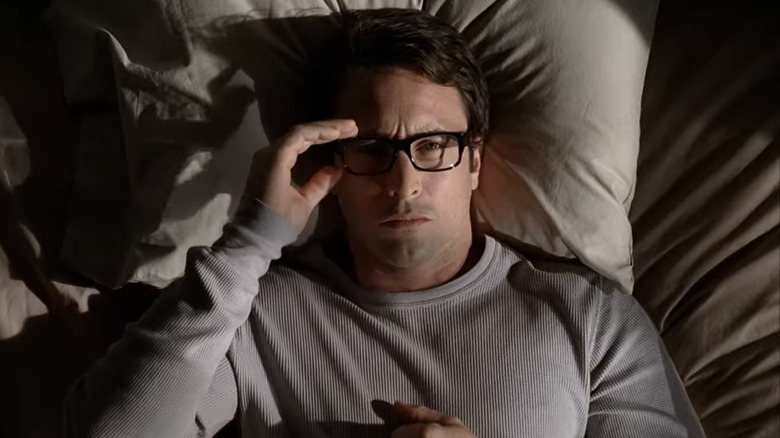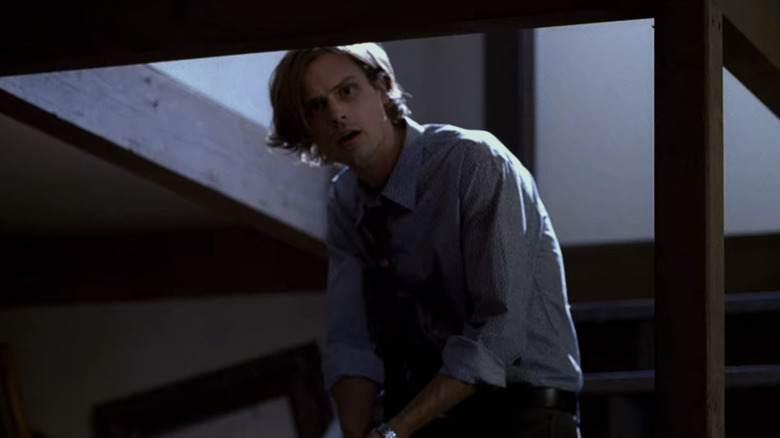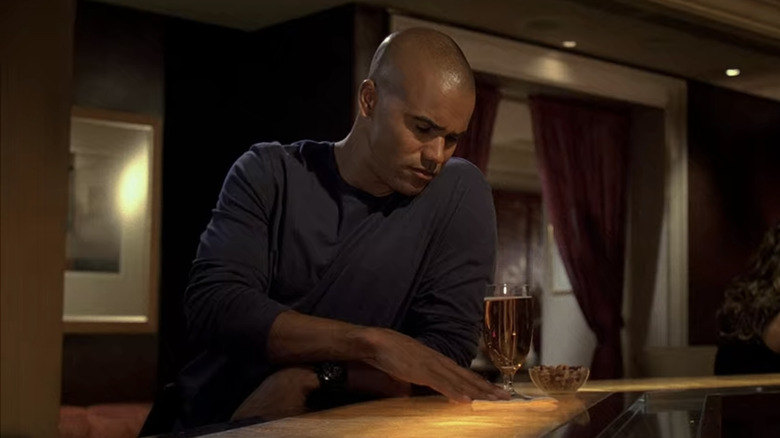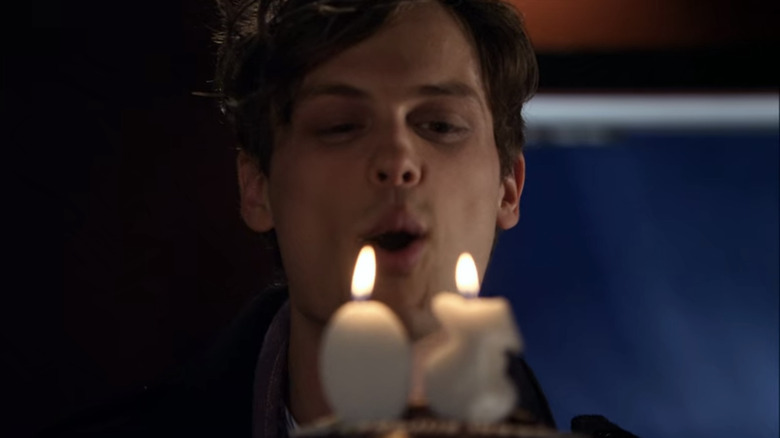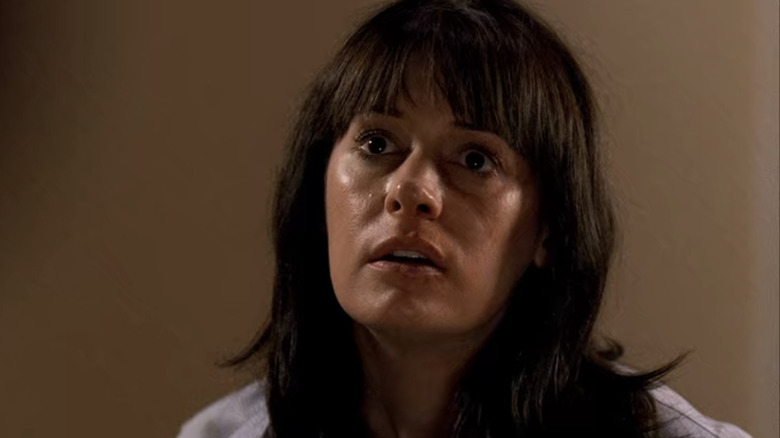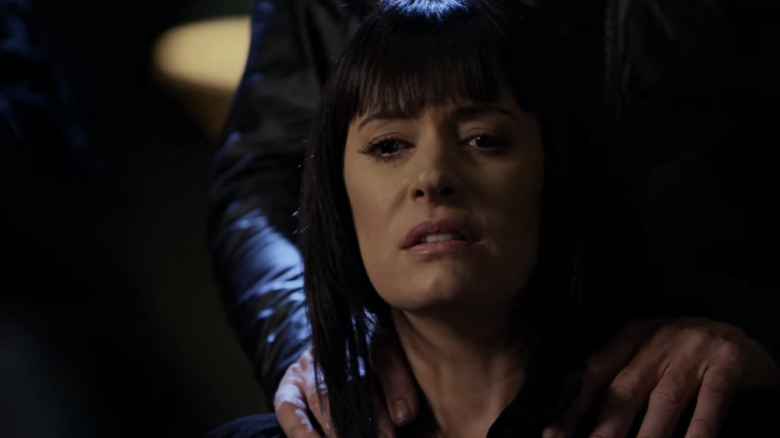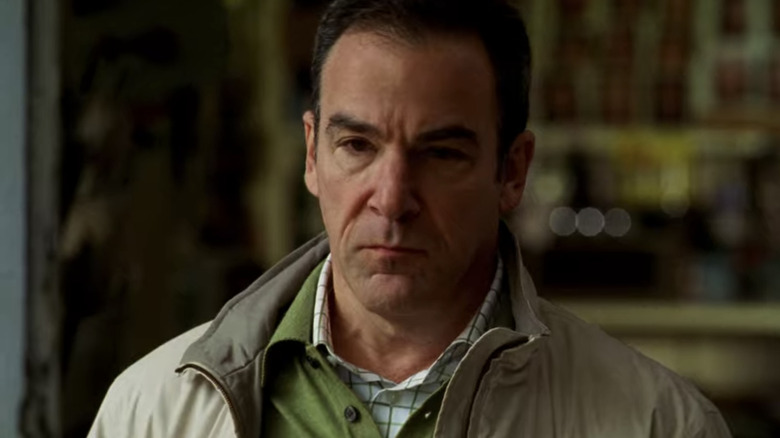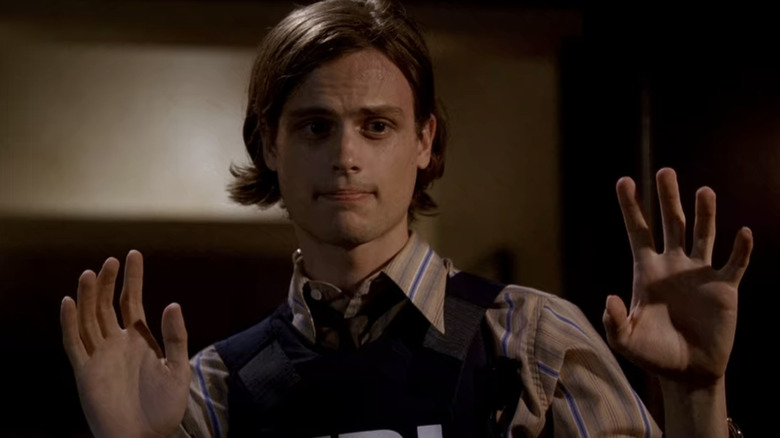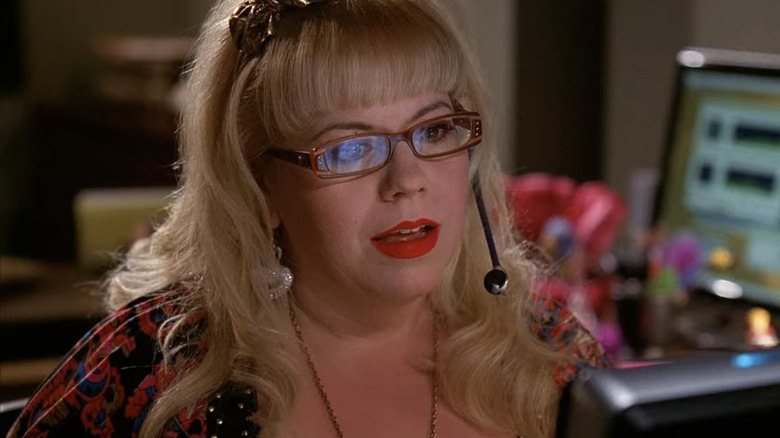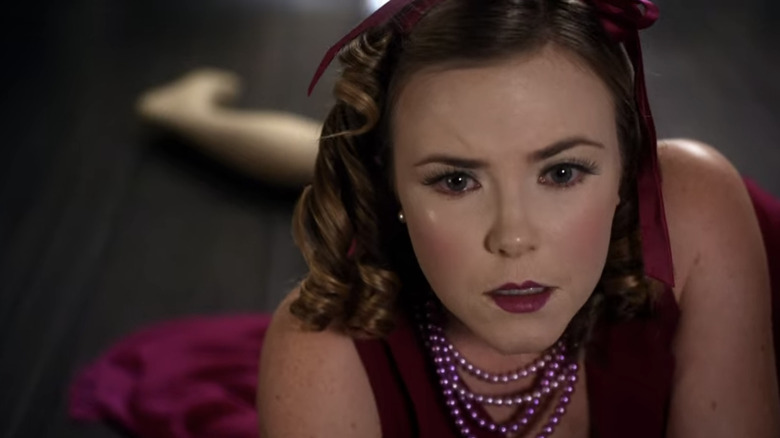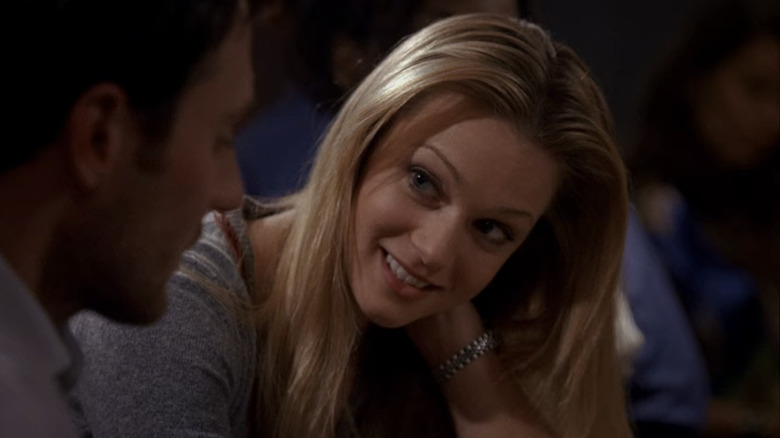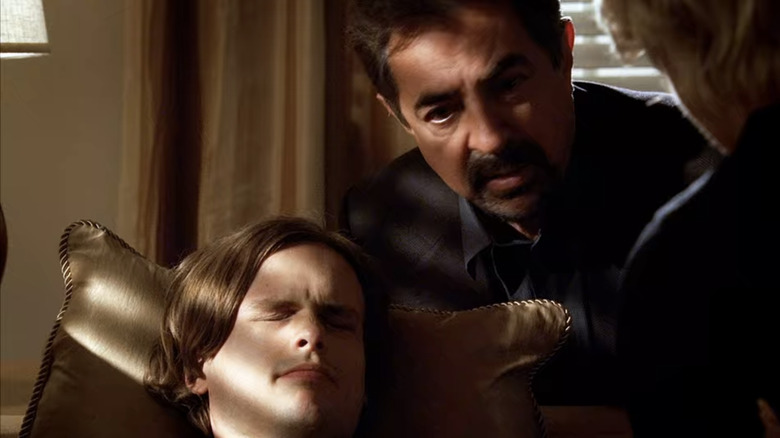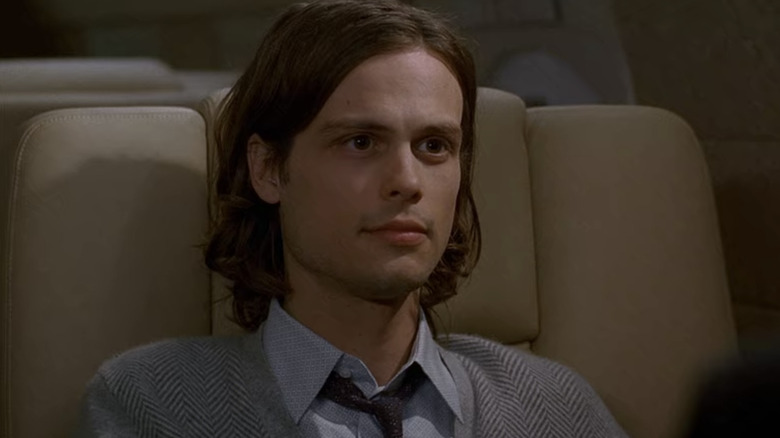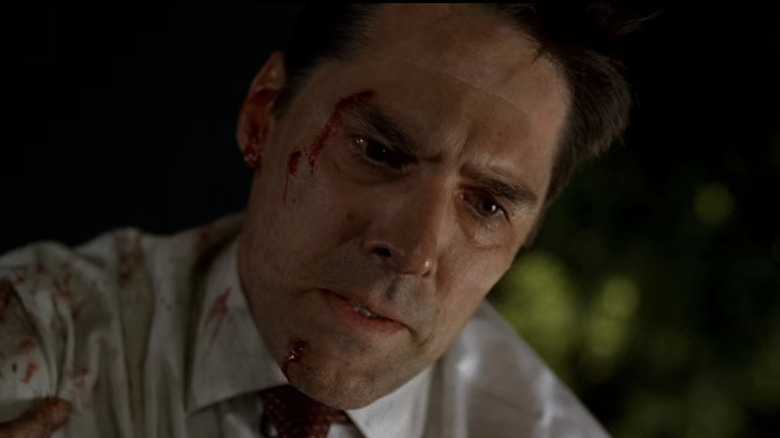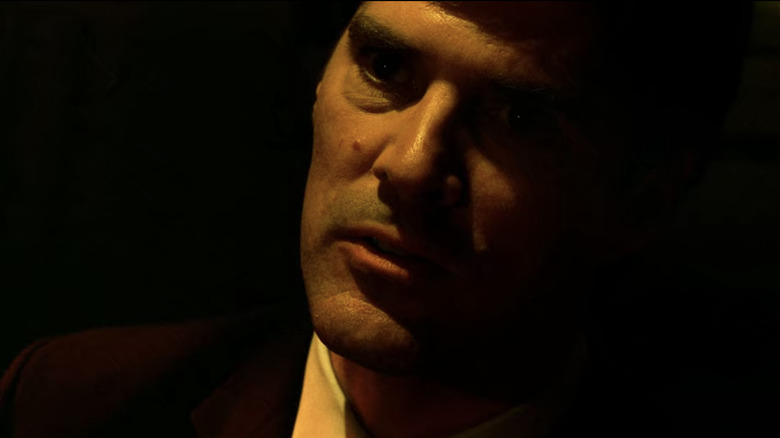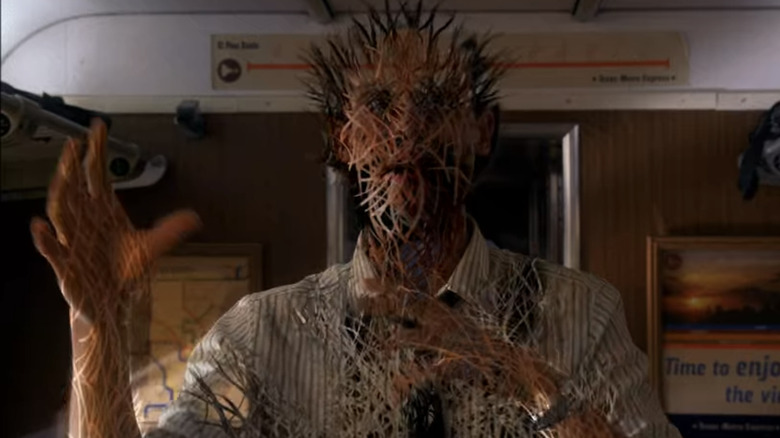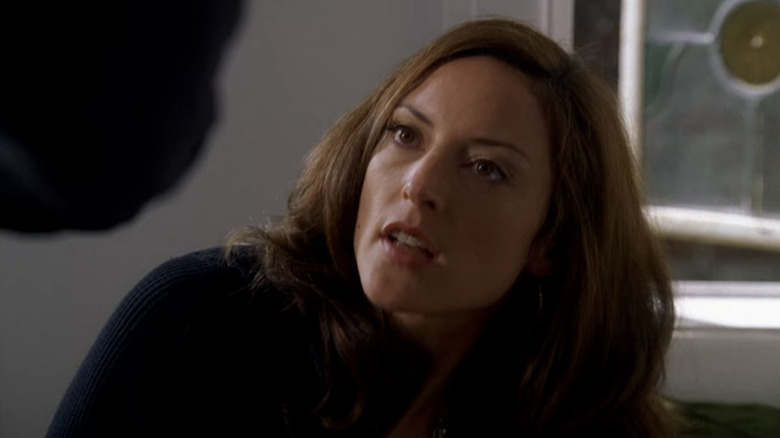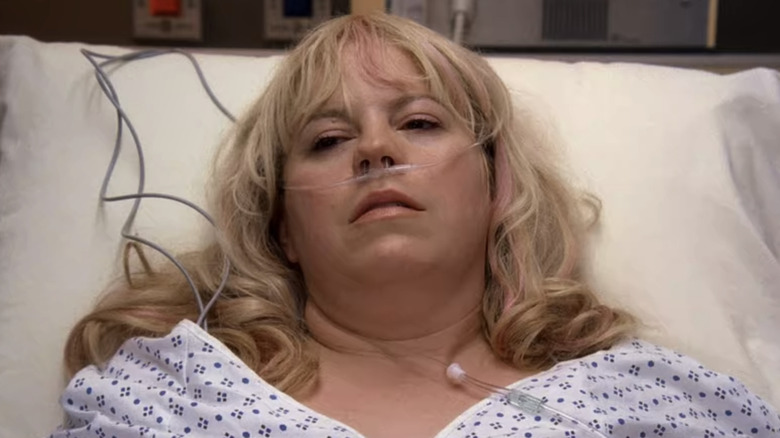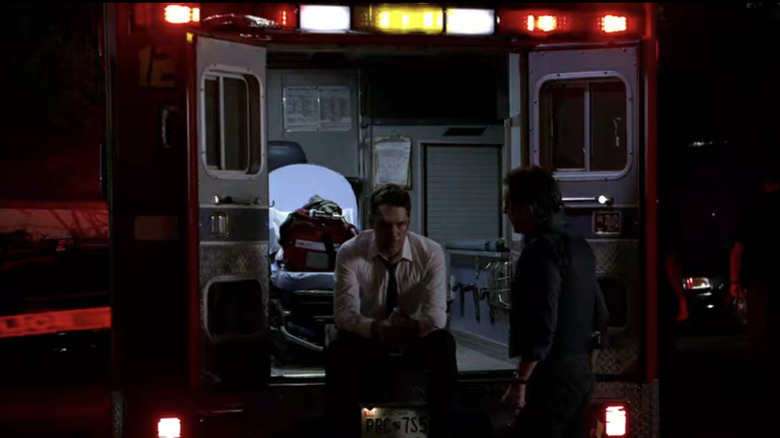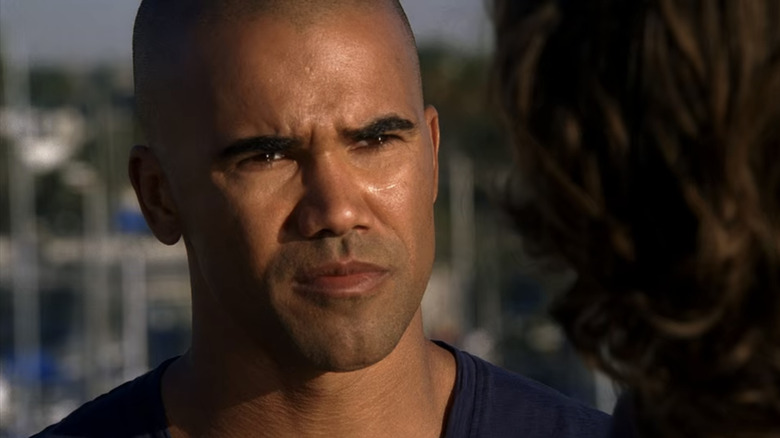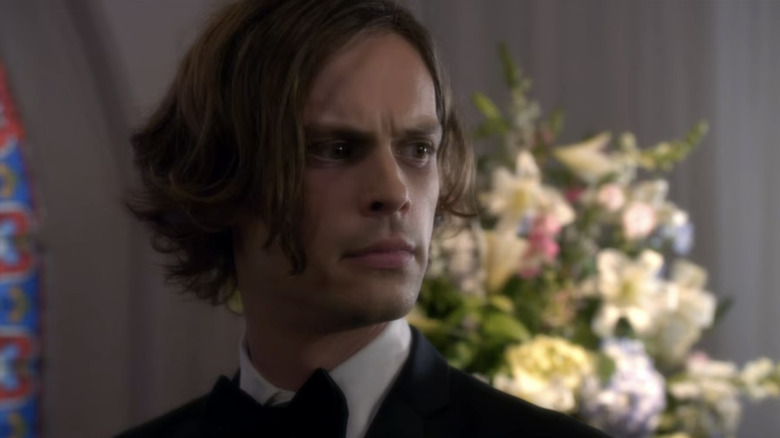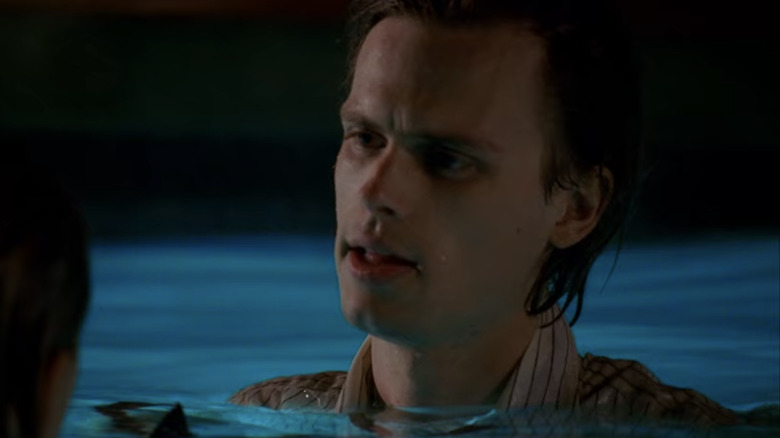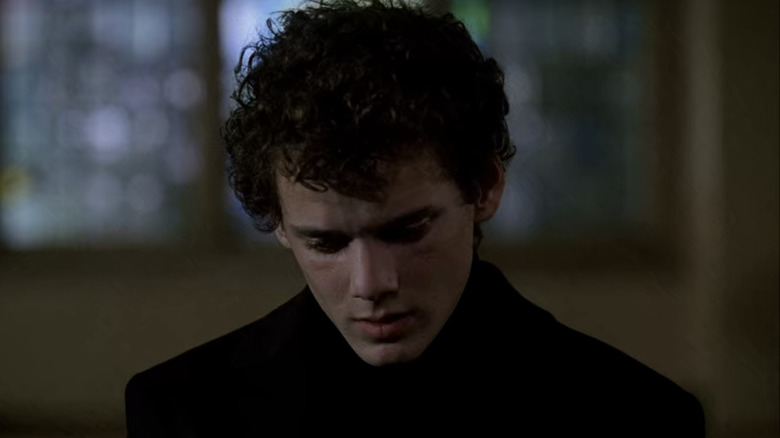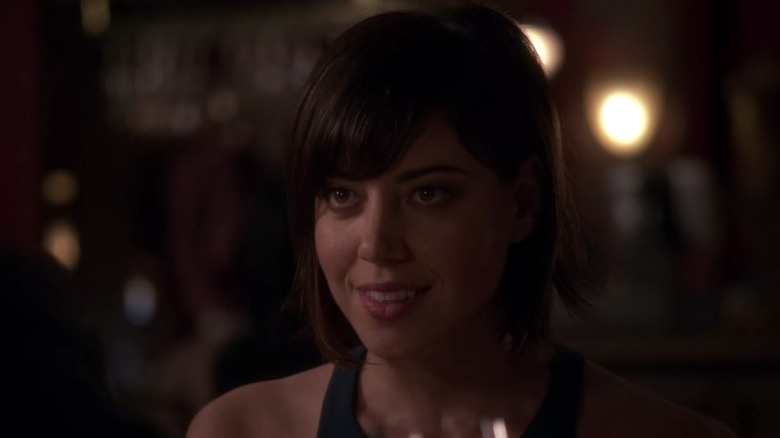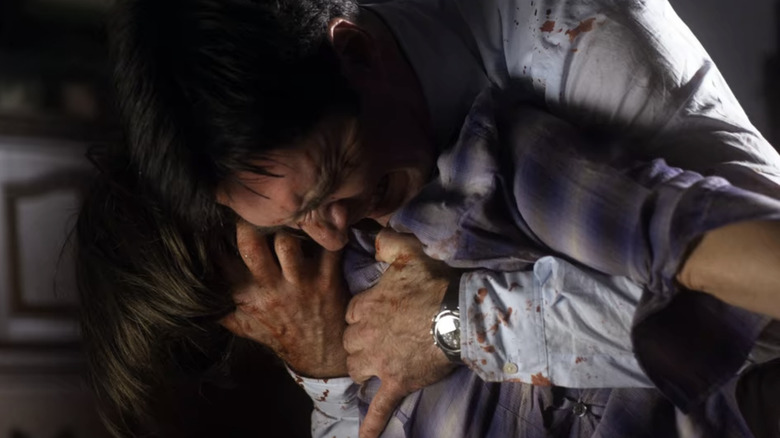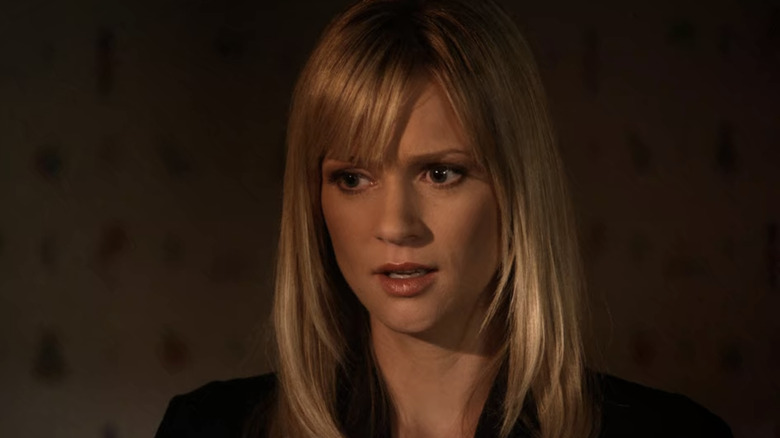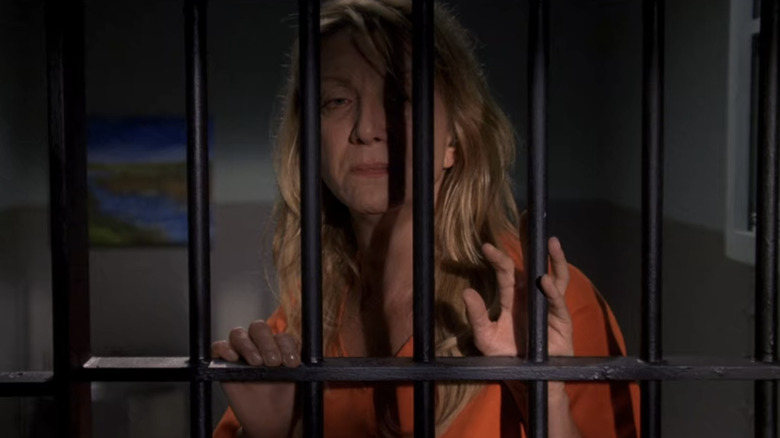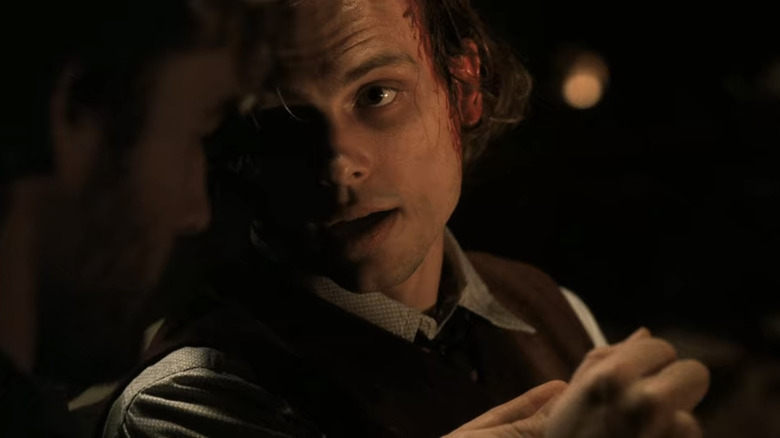Criminal Minds Top 30 Episodes According To IMDB
During 15 years on the air, "Criminal Minds" racked up 324 episodes — an even more impressive feat when you consider their quality.
The profiling-based procedural has excelled at offering memorable — and sometimes absolutely nightmarish — cases of the week, ranging from nuanced explorations of realistic (and even sympathetic) criminal behavior to stylized and terrifying thrill rides. It has also created a cast of beloved characters who often went through the wringer, leading to high stakes and even higher emotions. On top of all of that, it rounded up an always-surprising stable of series guest stars, some of whom were compelling enough to lift episodes into greatness all by themselves.
Although "Criminal Minds" supposedly "ended" in early 2020, one year later it was announced that there will be a 10-episode revival airing on Paramount+. If that series does well, who knows how much more time audiences could potentially spend with the BAU?
Looking back on the first 15 seasons, we cross-referenced the show's IMDb rankings and episode scores to come up with the site's consensus favorite "Criminal Minds" episodes. Fans are likely to agree: IMDb users have pretty good taste when it comes to their serial killer dramas.
30. Coda (Season 6, Episode 16)
The team headed to a coastal Louisiana town to investigate the abduction of a husband and wife kidnapped in front of their young son, whose autism — everyone assumed — would not allow him to tell them anything about the unsub's identity. But even though Sammy was mostly non-verbal, he was still capable of communication. The team just had to work out what he was trying to tell them. In the meantime, Prentiss' arc with her old enemy Ian Doyle heated up, as he approached her and began actively threatening the team.
"Coda" did an especially good job establishing a sense of place, giving us a small town that was economically devastated from the Deepwater Horizon oil spill. Those details helped cement this episode in the memory of fans.
29. Lucky (Season 3, Episode 8)
"Lucky" had two of the darkest episode punchlines in "Criminal Minds" history, lines no fan will ever forget: "So is Tracy Lambert" and "Hey, Garcia — I've been thinking about doing this all night." The latter line was what made this episode part one of two, so let's talk about that — and its place in a strong subplot about Garcia's insecurities — with the even higher-ranked "Penelope."
But the first line tied into the case of the week, which was especially gruesome and horrifying. The killer was an opportunistic Satanist, one who had seized on the devil as a justification for his own twisted urges, especially cannibalism. The investigation — and the unsub's almost preternatural good luck — forced Morgan to face his own troubled history with religion. The deep ties to characterization made this an especially moving episode.
28. The Big Wheel (Season 4, Episode 22)
Like a lot of the best "Criminal Minds" episodes, "The Big Wheel" was a tearjerker where there was simply no way to happily resolve the case. Alex O'Loughlin guest-starred as Vincent, a serial killer whose repeated crime — stabbing blonde women and filming their deaths — was the tangled outgrowth of his childhood trauma (witnessing his mother's murder) and severe OCD.
Thanks to a nuanced performance, Vincent was one of the show's more sympathetic killers. His emotional arc was complex, especially with the tender relationship he formed with the blind son of one of his victims: Vincent deeply empathized with him, and he had every reason to, but he was also the one responsible for the kid's pain. The team had to stop Vincent, but there was no way to do it that was going to feel like a big victory.
27. The Instincts (Season 4, Episode 6)
Maternal instincts were at the heart of this episode. The search for a kidnapped child lead to an ill woman whose delusions had her convinced — at least intermittently — that the boy she'd kidnapped was her own son. It was a sad case, but it had a nicely hopeful resolution that made it stand out.
All the while, Reid was having troubling dreams about discovering a child's body in a basement. The more troubling they got, the more they seemed connected to his actual past — which wasn't what he thought it was. Unearthing his trauma completely threatened to cost him his peace of mind — leading to another great episode, the powerful "Memoriam."
26. Lo-Fi (Season 3, Episode 20)
A series of perfectly executed shootings in New York had everyone running scared: If they were as random as they seemed, they might be impossible to predict or stop.
The situation was further complicated by the team's flawed liaison with the NYPD and the local FBI. The cops rarely liked the idea of being shoved aside by federal involvement, for one thing. Then there was the fact that Hotch had a history with Kate Joyner, the FBI agent in charge of the case — and her job appeared to be on the line. The agent in line to replace her? Morgan. Awkward!
The no-frills, all-too-competent murders turned out to be the run-up to more serious terrorist activity, and the show generated some particularly good suspense. The interpersonal wrinkles also contrasted nicely with the taut plot.
25. True Genius (Season 7, Episode 11)
A series of Zodiac copycat killings lifted the lid on a dark and tangled history in "True Genius."
The episode also touched on a kind of premature midlife crisis child prodigies sometimes go through once they realize how their adult lives have turned out: The unsub felt like he had lost the high-octane intellectual and emotional connection he once shared with his former best friend, and even Reid worried about whether or not he'd measured up to his own high expectations.
"True Genius" was "Zodiac" crossed with Hitchcock's "Rope," making it an awesome standalone case that was one of the series' best. The perfect button on it all was the heartwarming scene at the end, where the team honored Reid's birthday with a bittersweet celebration.
24. Minimal Loss (Season 4, Episode 3)
"Minimal Loss" set up a tense hostage situation inside a cult. Prentiss and Reid were there to investigate allegations of child abuse. They didn't want to antagonize the already-paranoid cult leader, Cyrus, so they pretended to be "child victim interview experts." Their careful strategies, however, would be smashed by a surprise SWAT raid hitting the compound — and the news announcing that one of the hostages was an undercover FBI agent. BAU team members both inside and outside the situation had to attempt to broker a peaceful resolution ... as Cyrus geared up for another Jonestown.
The cult focus made for a relatively unusual episode, and the high-stakes situation gave Prentiss, Rossi, and Reid a great spotlight to show off their different approaches. Not to be forgotten is the late Luke Perry, who did some wonderfully unsettling work as Cyrus.
23. Lauren (Season 6, Episode 18)
In this heartbreaking, pulse-pounding episode, Prentiss wound up in a fateful standoff with Ian Doyle, a terrorist she'd worked against in her Interpol days. Back then, Doyle knew her as "Lauren Reynolds," the woman of his dreams. Now, he blamed her for his son's death, and was determined to make her pay. But Prentiss had more than a few revelations up her sleeve, and she wasn't about to go down easily.
The real kicker of "Lauren," however, was that the team didn't know the full extent of that. At the end of the episode, they thought Prentiss was dead — even attending her funeral. But, aided by J.J., she had actually gone on the run to ensure that Doyle wouldn't try to get to her by hurting her friends.
"Lauren" was excellent, both as a thriller and a showcase for Prentiss, one of the best "Criminal Minds" characters — and thankfully, not really her final appearance.
22. Extreme Aggressor (Season 1, Episode 1)
This "Criminal Minds" pilot kicked the series off on the right note, with a shiver-inducing cold open and a strong case.
The BAU team investigated a series of murders where the victims were held for several days before being killed, and the crimes revealed a strangely-muddled set of impulses at work. While racing to save the latest victim, the team also had to wonder whether Gideon — still showing lingering signs of trauma after losing six agents — belonged in the field at all.
There was a lot to like about this first episode, but one of its biggest strengths was how it messed with the standard procedural formula. The "whodunit" was solved about halfway through, turning the rest of the episode over to the need to save the most recent abductee's life. It all concluded with one heckuva unsettling cliffhanger.
21. The Fisher King: Part 2 (Season 2, Episode 1)
The Season 2 premiere continued the "Fisher King" plotline, in which the team was sent on an Arthurian-tinged quest involving an elaborate puzzle.
Meanwhile, the episode also tackled the biggest part of Season 1's cliffhanger finale: What happened to Elle? In "Part 2," viewers received a far-from-reassuring answer: hovering between life and death, things for Elle could go either way.
A powerful season-opener, "The Fisher King: Part 2" adeptly tied the characters' lives and idiosyncrasies into the plot. The eventual revelation about how it all tied back to Reid's mother — and his guilt over a reluctance to visit her in the hospital — was expertly navigated (and resulted in more Jane Lynch, which is never a bad thing).
20. Amplification (Season 4, Episode 24)
Few murder methods feel as sinister as anthrax. "Amplification" leaned into that, going for maximum and all-too-easy-to-imagine chills.
This episode's killer showed a blend of paranoia and vindictiveness. Couple that with the even-deadlier-than-usual pathogen strain, and he was a major public threat — but if the public found out, the resulting panic could cost even more lives. So, the team had to keep the case under wraps, even at the risk of letting their own families walk into danger. The equation only intensified once Reid was infected.
"Amplification" was a great episode for characterization, from Reid's message to his mother to the different choices the team made about lying for the public good. Needless to say, the pacing and tension were also so memorable.
19. The Uncanny Valley (Season 5, Episode 12)
One of the show's creepiest cases became one of its most unexpectedly affecting in "The Uncanny Valley."
A female unsub was abducting women and drugging them to make them into immaculately groomed and costumed living dolls — beyond nightmarish, especially since the women, although paralyzed, were conscious the whole time. Once the team unraveled why the unsub was the way she was, the story only became bleaker, and the resolution began to become more vital.
Ultimately, in "The Uncanny Valley," the creepy trappings mattered less than the portrayal of courage and teamwork and, on the other hand, the sensitive exploration of pain and the corrupt misuse of power. The episode also incorporated a particularly cool investigation tidbit involving a defunct doll company and its write-in competition, and it showed off Jonathan Frakes in a quietly horrific role. This one was strong in themes, storytelling, and performances, earning a well-deserved spot on this list.
18. Jones (Season 2, Episode 18)
Reid's struggle with his Dilaudid addiction reached a turning point in "Jones," but while that was a major highlight of the episode, it was hardly its only strength — or even its only tie to some of the show's serialized elements.
This was also where viewers got the first appearance of Will LaMontagne (who would eventually marry J.J.) and it was a good debut, introducing Will as charming, low-key in style, and deeply compassionate.
But the best part of "Jones" may have been the case, which more than a decade later remains sadly timely. Someone was killing men in New Orleans — while the city was still trying to rebuild after Hurricane Katrina and in desperate need of tourism dollars — and the deaths were even mimicking Jack the Ripper slayings.
While the murders seemed stylized, they came from a place of raw pain — and uncovering the killer's sympathetic motivation was a key part of the plot. The real-world resonance here only made the episode more impactful.
17. Memoriam (Season 4, Episode 7)
Following up on "The Instincts," "Memoriam" dove headfirst into Reid's mysterious dreams about an ominous gap in his childhood memories.
When Reid had nightmares that his estranged father was a murderer, was it only symbolic? Or had he actually been picking up on something? The episode always hung on the precipice of going incredibly dark, as Reid's memories continued to suggest awful secrets about his father and his own life — ratcheting up the tension around the team's concern that this might be one case Reid would be better off avoiding.
The past case had a clever resolution, but the feelings were really the star of the episode. It was awesome to watch the team rally around one of their own, and Reid's muddled feelings and moral dilemma were potent, rendering the highest of stakes. On a lighter note, the episode also gave viewers the birth of J.J.'s son, making for an ending both hopeful and adorable.
16. Elephant's Memory (Episode 3, Episode 16)
"Elephant's Memory" was an agonizing episode, especially for Reid.
When a bullied, mistreated teenager snapped and began killing the people who had wronged him, Reid could identify with his horribly troubled life — and saw every place where adults should have intervened and did not. Still struggling with his guilt over a previous case, Reid desperately wanted to stop this one from ending in the suspect's death. In fact, his sobriety may have depended on it.
The unsub's trauma and Reid's bone-deep understanding of it were both well-handled, as was Reid's anger about how easily it could have been prevented. That anger and sorrow gave "Elephant's Memory" a raw power, as well as talking points that deserved such exploration. The cherry on top was a tremendous soundtrack, fueled by none other than Johnny Cash.
15. Mayhem (Season 4, Episode 1)
The terrorist plot from "Lo-Fi" continued with this suspenseful Season 4 premiere.
The episode built up with several high-quality twists, keeping viewers guessing about the terrorists' ultimate goal. The cops were hoping that multiple deaths and a high-profile bombing were the end of the statement, but as Rossi was quick to point out — as horrific as that was, it paled in comparison to 9/11 — and with perps likely determined to unleash something bigger, the clock was ticking for them to figure out their plans.
This episode would be strong throughout, with great plotting and tension, but one of the best parts may have been the gut-wrenching scene where Hotch repeatedly begged the emergency first responders to come through the barricade and help the severely wounded Agent Joyner. Knowing that they were under orders not to intervene yet, since everything had led them to expect a second bomb would hit the incoming paramedics, he continued to plead for help anyway.
When the usually-stoic Hotch broke down, it was a moment "Minds" fans would never forget.
14. L.D.S.K. (Season 1, Episode 6)
A highly effective sniper — fine, "long distance serial killer" — was striking during daylight and wounding multiple people each time. It was a case of "hero homicide," where the attacker endangered lives so he could have the glory of saving them. But by the time the team found out the killer's identity, it would prove to be too late: Hotch, Reid, and several civilians had become trapped in a hostage situation.
The plotting in this episode was great — the convincing red herring suspect would be a terrific misdirect — but the highlight here was the extended standoff with Hotch, Reid, and the killer, tying in perfectly with all the earlier setup about Reid failing his firearms qualification. Although watching Hotch pretend to be completely sick of Reid was pretty painful — Reid's teary face was hard to look at — it was a masterful manipulation and so, so satisfying.
13. Derailed (Season 1, Episode 9)
Hostage situations bring out the best in "Criminal Minds," and "Derailed" was an early, highly successful example of that.
Coming back from an interview in Texas, Elle's train was forced to make an emergency stop. Dr. Bryar — a physicist hospitalized for paranoid schizophrenia — saw both the stop and Elle's FBI status as ominous signs that the "higher authority" he feared were following him. Managing to take the train car hostage, it became a terrifying situation because negotiating him would only play into — and satisfy, thereby increasing — his delusions.
Bryar wasn't truly malicious, he was simply in tremendous mental and emotional pain — and actor Chris Bauer portrayed that skillfully, lending the episode additional pathos. The jumbled cast of civilian train passengers, all wild-cards, added some fun — as did the use of close-up magic to save the day.
12. The Fisher King: Part 1 (Season 1, Episode 22)
The show concluded its first season with perhaps the most out-there unsub to date, a man who wanted to send the BAU team on an Arthurian quest.
This was one episode, however, where believability didn't matter in the slightest — because although the premise was goofy, the results were epic enough to earn forgiveness.
It was hard to beat the cliffhanger, ending the episode with Elle at gunpoint. The dramatic reveal of the unsub waiting for her was so good that the show would effectively reuse it — even more darkly and dramatically — for the Season 4 finale. The details viewers received about the team's lives were also truly illuminating, expanding the universe of the show substantially, particularly in regards to Reid's mother. The deeply personal focus of this two-parter ultimately, somehow, made the grand adventure plausible.
11. Penelope (Season 3, Episode 9)
Penelope Garcia, one of the show's most beloved characters, began "Penelope" with her life on the line. The episode followed on the heels of "Lucky," where Garcia's date finished with her charming mystery man shooting her in the chest. Now, the team had to try to figure out why a killer became fixated on their technical analyst — and what it might have to do with Garcia's extracurricular efforts to help victims find justice.
In addition to being a lovely Garcia episode, this one also introduced her long-standing boyfriend Kevin Lynch (Nicholas Brendan). It had a bonus focus on the relationship between Morgan and Garcia, as the extreme situation took their usual friendship and playful flirtation even deeper, giving them some incredibly sweet, touching scenes together.
10. Mr. Scratch (Season 10, Episode 21)
Over the years, Matthew Gray Gubler came to excel at directing "Criminal Minds" episodes that were in essence mini-horror movies, and "Mr. Scratch" may have been the most purely terrifying of them.
When an unsub used psychotropic drugs to put victims into a hallucinatory, suggestive state, convincing them that they were being menaced by a shadowy monster before manipulating them into unknowingly killing their loved ones, the team had to come together to put a stop to it. The theme played off the '80s heyday of the Satanic Panic, where false accusations ran wild, sometimes ruining lives.
Unlikely? Sure. Creepy beyond belief? Definitely. But this atmospheric gem of an episode was also a skin-crawling experience, and one no horror fan would want to miss.
9. Conflicted (Season 4, Episode 20)
"Conflicted" handled a touchy topic — a split-personality killer — with impressive sensitivity. Here, the damaged, fragile Adam was sometimes subsumed by his protector, the more aggressive Amanda. This was detailed with tremendous empathy, resulting in a poignant, distinctive episode.
Evoking trans issues in a way that was impressively eye-opening at the time (even if it hasn't really held up with time), the sincerity at the heart of "Conflicted" is unmistakable, and both Adam and Amanda would become sympathetic.
The episode also got a lot of mileage out of the way the multiple personalities here paralleled Reid's experience with Tobias Hankel. "Criminal Minds" has always been at its most compelling when drawing upon such serialized elements, and "Conflicted" lets the characters' past traumas influence their present — so, when Reid cited Tobias as the reason he so badly wanted to rescue Adam from his more dominant alter ego, it was a shorthand the audience understood immediately.
8. Zugzwang (Season 8, Episode 12)
Reid's long-distance relationship with mystery girlfriend Maeve (Beth Riesgraf) came to a disastrous, tragic end in "Zugzwang," as Maeve's stalker abducted her before she and Reid could even meet in person.
The sheer, impending doom of this episode made it hard to watch, but it nevertheless is remembered as a well-executed romantic tragedy with a terrifying — but riveting — unsub (truly, Michelle Trachtenberg's performance here was really something to behold).
"Zugzwang" made a beautiful, painful case for Maeve and Reid being soulmates, even as it built towards its devastating final act — which only gave the episode a more substantial emotional impact. Go back and watch it if you can — but be prepared to watch something happier afterwards.
7. Somebody's Watching (Season 1, Episode 18)
"Criminal Minds" went to Hollywood in this episode, after a string of murders turned out to be the handiwork of a single killer. The perpetrator was a stalker, obsessed with up-and-coming TV actress Lila Archer (Amber Heard), planning deaths to "help" Lila by eliminating her competition and punishing a producer who chose another actress. But as the stalker came to feel under-appreciated, Lila herself became a target.
"Somebody's Watching" came alive with its examination of the sordid, lonely side of even B-list celebrity life. Exploring the thin line between a paparazzo and a stalker, there were some interesting comparisons made. Then there was the flirtation and bittersweet romance between Lila and Reid, both enjoyable and well-handled. There aren't many "Criminal Minds" episodes you could watch on Valentine's Day, but "Somebody's Watching" wouldn't be a bad pick.
6. Sex, Birth, Death (Season 2, Episode 11)
A notable selling point in "Sex, Birth, Death" was the phenomenal guest-starring appearance by Anton Yelchin as Nathan Harris, a teenager slowly losing his ability to struggle with his dark impulses.
Knowing that he had the signs of a budding serial killer, Nathan wanted to stop himself from going down that path. He even sought out Reid's help — but there simply appeared to be no way to keep Nathan's case from ending badly.
Anton Yelchin's tragic real-life premature death, in retrospect, now lends this episode even more pathos. But it doesn't require it — on its first airing, "Sex, Birth, Death" was extremely potent.
Dark, incredibly well acted, and with a penetrating focus on empathy and psychology, this Season 2 episode makes one of the clearest cases for "Criminal Minds" having a unique identity of its own. After all these years, it is episodes like this that made "Minds" stand out in a crowded field of TV procedurals.
5. Entropy (Season 11, Episode 11)
There are other actors in this episode besides Matthew Gray Gubler and Aubrey Plaza, but you might not remember them once you're done watching it.
Most of "Entropy" was an unbelievably dramatic two-person cat-and-mouse game, without them ever leaving a restaurant table. Plaza plays Cat Adams, a contract killer Reid needed to lure out into the open. But she suspected his intentions, and now if Reid didn't make every single play exactly right, she could win.
Gubler and Plaza would prove to have unbelievable chemistry, dark and crackling and full of mutual insight. Both actors know how to expertly dole out breadcrumbs as their characters used the information they gathered about each other to devastating effect. "Entropy" wrapped up one of the show's ongoing arcs, but its immediacy and charismatic hero-villain standoff makes it memorable on its own.
4. 100 (Season 5, Episode 9)
The FBI brass dissected the shocking conclusion of the Reaper case, and in between interviews with the team — all of whom were fiercely defensive of Hotch — we flashed back to see what happened when George Foyet's long vendetta against Hotch finally reached its conclusion.
When the team began getting close to finding the off-the-grid Foyet, meanwhile, he struck back in an especially horrific way, locating Hotch's ex-wife Haley and son Jack, who were under protection.
"100" was an unforgettable episode, one with a substantial impact on the series as a whole, especially as far as Thomas Gibson's characterization of Hotch would be concerned. The Reaper arc was one of the standout parts of the show, so its explosive endpoint earned its high place on this list. But if you're tempted to go back and re-watch, just be prepared for the onslaught of some pretty brutal emotions.
3. Mosley Lane (Season 5, Episode 16)
This episode focused on a couple who had spent years periodically abducting children to form a kind of twisted "family," one that lived in their basement and was forced to cooperate with other kidnappings. The latest abduction (which at first appeared to stand alone), prompted J.J. to look into a strange similarity with another kidnapping eight years ago — one where the mother had never given up hoping that her son was alive, continually advocating for the investigation of his case.
"Mosley Lane," like a handful of other memorable "Criminal Minds" episodes, had distinct horror movie overtones, lending it distinctive visuals and a grimy terror. While some of its details could be viewed as extreme, it grounded such episodes in all-too-believable parental grief and terror. As a result, viewers could never stop feeling for them — and never stop being anxious about the fates of their children.
2. Riding the Lightning (Season 1, Episode 14)
Tragic, devastating, but somehow hopeful, "Riding the Lightning" was a uniquely powerful "Criminal Minds" episode, and looking back now it's easy to see why fans rank it so highly.
The episode concerned itself with Jacob and Sarah Jean Dawes, a famous serial killer couple slated for execution — and on the eve of their deaths, they agreed to speak to the BAU. The interviews could offer invaluable insight into how these kinds of killer couples work ... but instead, they offered something else. They convinced the team that Sarah Jean was innocent.
Despite Jacob's insistence that she helped with all the victims, Sarah Jean only ever confessed to the murder of her young son, Riley. With this newfound information, Gideon realized that Riley may be alive after all, and Sarah Jean had sent him away to protect him from his parents' reputation. If they could find him in time, they might be able to stop her execution.
The episode's ticking time bomb aesthetic gave it a tense mood like a tightening noose. Every performance in the episode was rock solid, and "Lightning" showed the promise the series would tap into in the years to come.
1. Revelations (Season 2, Episode 15)
This high-octane, suffocatingly tense episode was the second in a two-parter. The first installment ended with suspect Tobias Hankel abducting Reid — and here, we saw Reid's prolonged ordeal and the team's fight to save him.
Emotions in this episode ran high, making it easy to see how fans got swept up. The situation was so personal and tense: Even if you watched it knowing Reid wouldn't die, you were still seeing him being beaten, forcibly addicted to Dilaudid, psychologically tortured with Russian roulette, and forced to make choices between Henkell's prospective victims. Taken as a whole, it was intense — and that intensity made it all the more rewarding when Reid still managed to figure out how to send coded messages to his team via Henkell's live-streaming.
But when fans talk about what makes this arguably the greatest "Criminal Minds" episode, they can't discount James Van Der Beek's performance.
Perhaps you didn't see Dawson Leery as a serial killer, but after this, you certainly could. Since he was playing a man whose personality had fractured, you could also see Van Der Beek's character as another victim, one whose plight was heart-wrenching all on its own. Tobias Hankel was essentially his father's tortured, reluctant accomplice — one doing what he could to ease Reid's suffering. It was the cherry on top of a classic episode.
